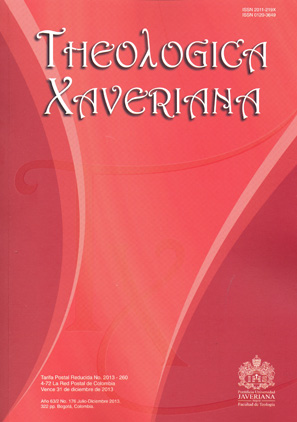Abstract
The supremacy of truth was one of the main principles in J.H Newman’s personality. This article highlights this particular feature, but it mainly focuses on the possibility all every human beings needs to either justify their beliefs or reach the citizenship of truth. In this sense, the argument of this work departs from the optional nature of the illative sense. Underlying the present work is the acceptance by a thinking individual to a religious or faith-related truth. From this perspective, it is not arbitrary to consider the systematicity of the grammar of religious acceptance as an inspiring possibility in the design of a renovated grammar of faith.
This journal is registered under a Creative Commons Attribution 4.0 International Public License. Thus, this work may be reproduced, distributed, and publicly shared in digital format, as long as the names of the authors and Pontificia Universidad Javeriana are acknowledged. Others are allowed to quote, adapt, transform, auto-archive, republish, and create based on this material, for any purpose (even commercial ones), provided the authorship is duly acknowledged, a link to the original work is provided, and it is specified if changes have been made. Pontificia Universidad Javeriana does not hold the rights of published works and the authors are solely responsible for the contents of their works; they keep the moral, intellectual, privacy, and publicity rights.
Approving the intervention of the work (review, copy-editing, translation, layout) and the following outreach, are granted through an use license and not through an assignment of rights. This means the journal and Pontificia Universidad Javeriana cannot be held responsible for any ethical malpractice by the authors. As a consequence of the protection granted by the use license, the journal is not required to publish recantations or modify information already published, unless the errata stems from the editorial management process. Publishing contents in this journal does not generate royalties for contributors.


